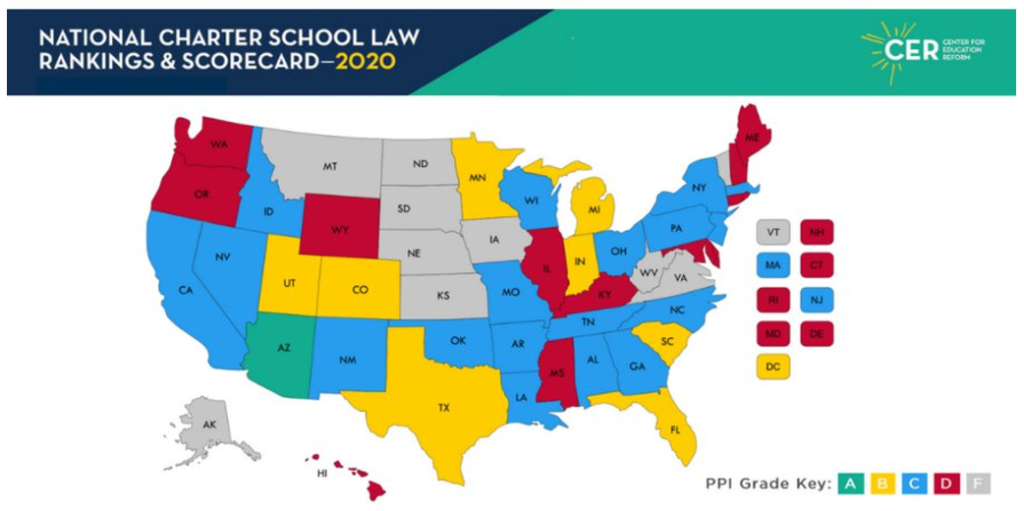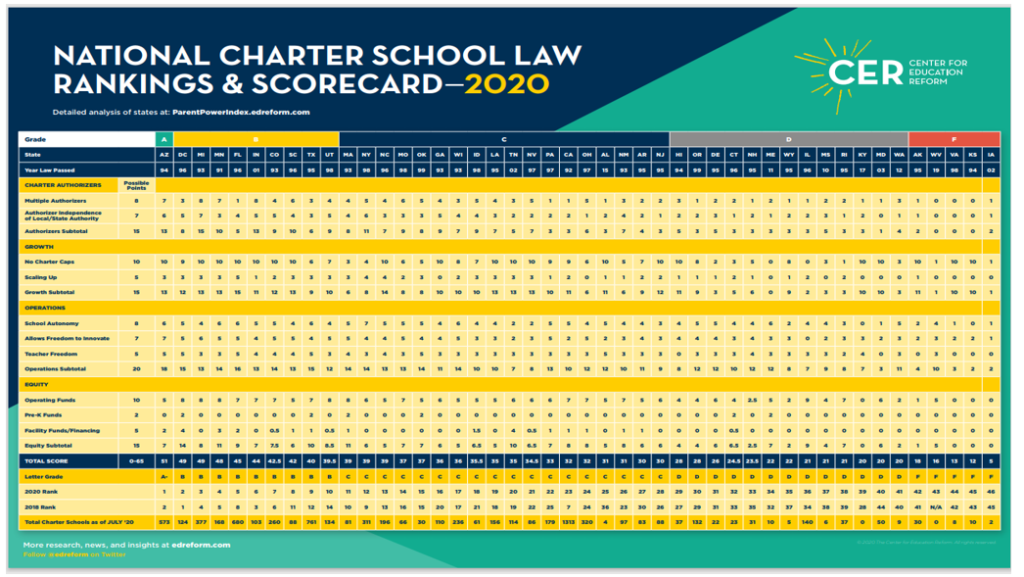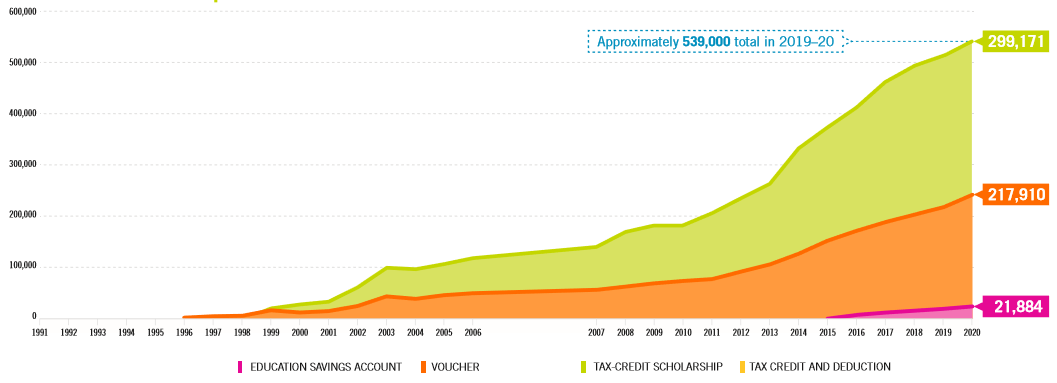 Now that the smoke has begun to clear from the 2020 elections, it’s a good time to take stock of the parental choice movement.
Now that the smoke has begun to clear from the 2020 elections, it’s a good time to take stock of the parental choice movement.
The Center for Education Reform has released 2020 grades for charter laws based on a variety of factors, including the number and independence of authorizers, the absence caps/potential for growth, the independence of schools and the equity of funding.
 Arizona’s is the only law to receive an A grade (an A-minus). Washington, D.C., Michigan, Minnesota, Florida, Indiana, Colorado, South Carolina, Texas and Utah received B grades. Unfortunately, the number of charter laws receiving D/F grades is almost twice as numerous as A/B grades. In the worst cases, charter school laws don’t produce many charter schools.
Arizona’s is the only law to receive an A grade (an A-minus). Washington, D.C., Michigan, Minnesota, Florida, Indiana, Colorado, South Carolina, Texas and Utah received B grades. Unfortunately, the number of charter laws receiving D/F grades is almost twice as numerous as A/B grades. In the worst cases, charter school laws don’t produce many charter schools.
Charter school laws are vital to expanding options for families, but they face substantial practical limitations related to starting new schools – securing start-up funding and facilities, in addition to legal limitations. The same politically powerful and powerfully misguided forces that have kept most charter school laws limited also have kept private choice laws limited in a variety of ways.
Moreover, of the four largest states by population (California, Texas, Florida and New York), Florida has the only private choice programs. While Florida has more charter school students than private choice students (329,000 compared with more than 160,000), more than a quarter of the students using vouchers, scholarship tax credits or education savings accounts are Floridians.
EdChoice provides this graphic depicting national private school choice numbers in its publication titled The ABCs of School Choice:
 Number of ESAs, vouchers and tax credit scholarships
Number of ESAs, vouchers and tax credit scholarships
As if the spring of 2020 didn’t do enough academic damage, school districts around the country have begun a second round of shutdowns, which means families need much stronger charter and private choice programs, and innovative solutions, as the need for remediation will exceed the current system’s ability to supply it.
If it ever existed, the time for capped, limited or otherwise hamstrung choice programs has passed. The 2021 legislative sessions will be a time to go big or go home.


